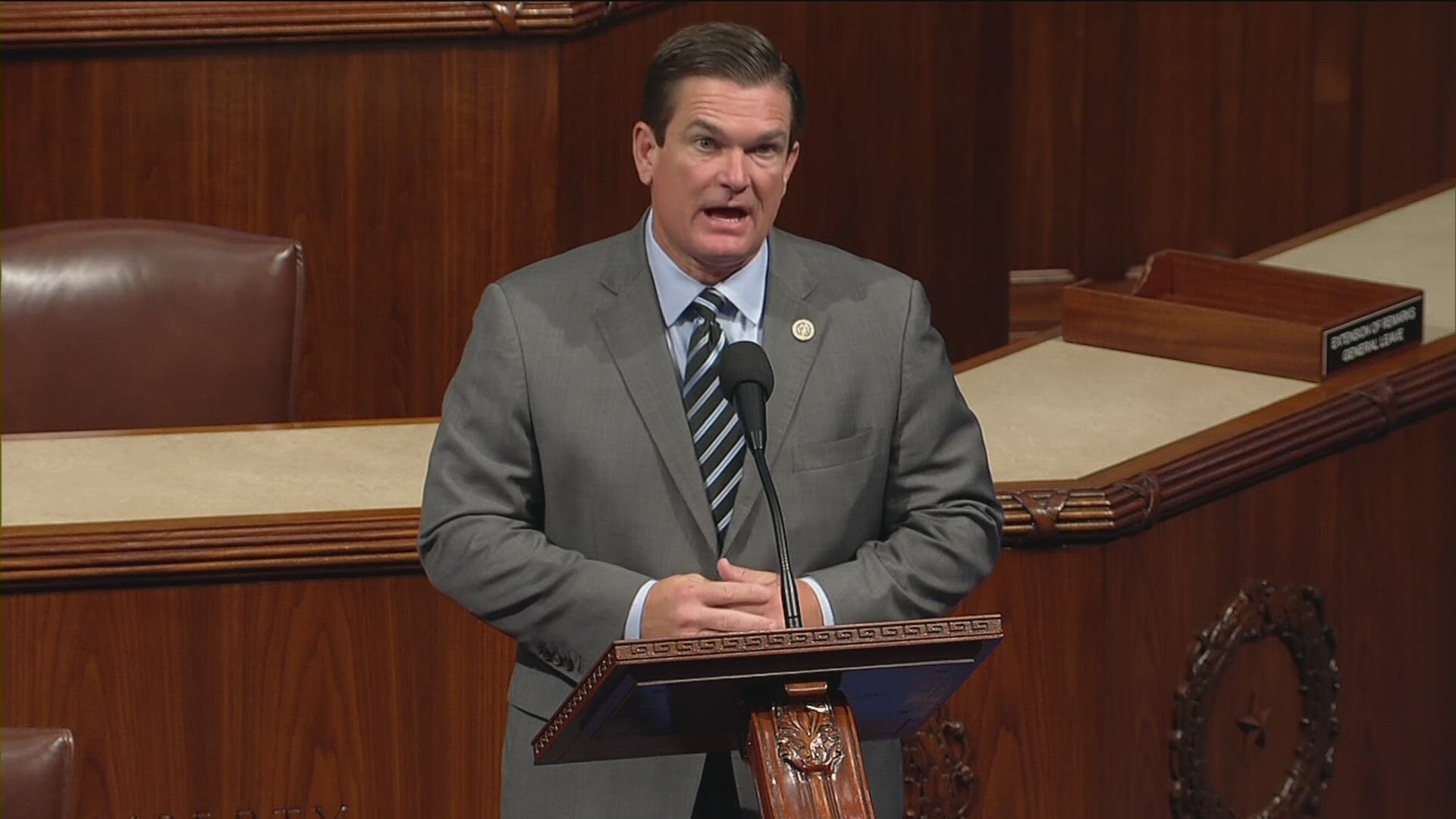ATLANTA — House Republicans will meet to hear pitches Monday night from the nine congressional representatives who are angling to be put forward for House speaker.
Among those nine will be Rep. Austin Scott, a six-term congressman who represents a long stretch of central and south Georgia. He's the senior-most Republican in Georgia's congressional delegation, having long kept a lower profile while prioritizing issues like agriculture and the military.
Now Rep. Scott is positioning himself for a step onto the national stage as the GOP caucus tries to find a speaker candidate who can fill the void that's now gone on for roughly 20 days.
Here's a little bit about his background:
Who is Austin Scott? Georgia Republican wants to be House speaker
Rep. Scott began serving in 2011, winning the first of his six elections in 2010.
According to his congressional biography, Scott is a University of Georgia graduate who owned and operated an insurance firm for nearly two decades before his foray into Congress. He and his wife Vivien have three children and live in Tifton, which is about 45 minutes north of Valdosta.
His district is huge - covering the middle part of Georgia's southern border with Florida all the way up and around the Macon area (though not Macon itself). Its largest cities include Valdosta and Warner Robins - and its rural composition plus the inclusion of Moody Air Force Base (Valdosta) and Robins Air Force Base (Warner Robins) has heavily influenced Scott's priorities as a lawmaker.
He's currently the vice chairman of the House Agriculture Committee and is the chairman of the Subcommittee on General Farm Commodities, Risk Management and Credit.
"Congressman Scott focuses his work on issues important to Georgia's farmers and rural communities, including increasing export market access and free trade agreements, bolstering grant programs for rural communities, strengthening crop insurance and disaster assistance programs, bridging the digital divide in rural America, and modernizing agencies within the committee's jurisdiction like USDA and the CFTC," his bio states.
He has also frequently sponsored legislation concerning veterans and the military. Among those have been a proposed amendment in 2021 to the Social Security Act to establish a disability benefit offset for Purple Heart recipients and a proposed amendment in 2019 to the Servicemembers Civil Relief Act which would have impacted military spouse occupational and business licensing.
He's also sponsored numerous pieces of legislation on military and rural matters - the Assistance for Rural Health, Safety and Education Facilities Act (2020), Purple Heart Freedom to Work Act (2019), Agricultural Trucking Relief Act (2019) and Veterans Cemetery Benefit Correction Act (2018) among them.
Earl Ehrhart, former Georgia Minority Whip, worked with Scott in the Georgia General Assembly. Ehrhart calls Scott a friend and believes he can unite Republicans and work across the aisle on Capitol Hill.
"Austin Scott is one of the most character-based legislators I ever served with. He's an honest, decent man," Ehrhart said. "He comes from an era of Georgia politics when we fought hard with the Democrats and Speaker [Tom] Murphy. It just wasn't the hate-based stuff like it is today. They just do not like each other. He should appeal to all the sides of the Republican caucus. His conservative bonafides are not in question. Austin Scott is a South Georgia Republican. Any person who questions his commitment to movement conservatism is just wrong."
During the Obama administration, Scott introduced several pieces of legislation geared toward a conservative base that was highly critical of the former president - with titles poking at the administration such as "Stop Abusing the Presidential Plane Act" (2016), "End Taxpayer Funded Cell Phones Act" (2016 and 2014), and "Halting Government Overreach Act" (2015).
Now Rep. Scott is looking to springboard his decade-plus of House experience into its most influential role.
“I have filed to be the Speaker of the House. We are in Washington to legislate, and I want to lead a House that functions in the best interest of the American people,” Scott said when he announced his first run on Oct. 13. After Rep. Jim Jordan failed to win a vote to gain the speakership, Scott announced a second run.
“If we are going to be the majority, we need to act like the majority, and that means we have to do the right things the right way. I supported and voted for Rep. Jim Jordan to be the Speaker of the House. Now that he has withdrawn, I am running again to be the Speaker of the House," Scott said.
Emory University political scientist Dr. Andra Gillespie said whoever is elected the next Speaker of the House will need to act fast. Once a speaker is installed, they will need to vote on aid to Israel and Ukraine, along with U.S.-Mexico border funding, plus a spending bill to keep the federal government going.
"At a time when the world is in such chaos and when there's a looming government shutdown, to be bogged down in who gets to be speaker is not something that looks good for Congress and its reputation," Gillespie said. "But it also doesn't look good for the Republican party."

